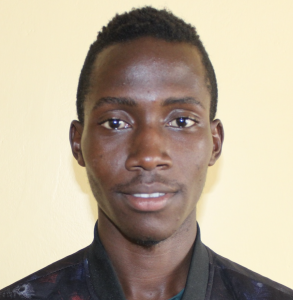Kalenda A community, distinct from Kalenda B village, is a mixture of an urban and a rural setting but leans mostly towards rural. The area is quiet and peaceful with the chirping of birds making it even better. Buildings in this area are made of mud walls and roofed with iron sheets. Some are decorated with various materials of different colors and some are plastered with cow dung.
More than 280 people make up this community where most families make money from farming. Women take care of all house chores as the men tackle the farm work. People in Kalenda practice farming on a large scale. Sugarcane and maize crops that are sold in local markets make up the majority of a family's income. Other crops like traditional vegetables, beans, and groundnuts also contribute.
For this community, a day begins at 6:00 am with the mothers up to make breakfast while the children prepare for school. The men and elderly people go to the farms and their various businesses. It is quite difficult to find people in their homes during the day. People start going back to their homes at about 3:00 pm for lunch and to travel to the market to sell their crops.
Webo Simali Spring is located in a central part of the village, so most of the households dependent on the spring can access it without interfering with their neighbors. The water is open and the community members have constructed a barrier to help build a reservoir to ease the collection of the water.
It is easy to see that the water is contaminated as evidenced by the numerous insects visibly wiggling through the water.
"Clean water is hard to find here," said Christopher Wambulwa Webo, a local mechanic who uses the spring. "And by clean water, I mean water that does not have insects or frogs inside."
Due to the presence of visible impurities to the water, community members have taken it upon themselves to sieve and boil this water before consuming it. But that only does so much in terms of eliminating waterborne infections. As a result, people here often fall ill from waterborne diseases.
Community members described to us that they endure costly trips to the hospital to care for family members. The financial toll of these infections has also caused a crisis in family finances and mental stamina. Some families have resorted to staying away from the hospitals - a decision that saves money yet increases the risk of long-term harm.
Protecting the spring would help community members access clean and safe water. The spring protection will ensure that the water from the spring is not contaminated by human activities. As a result, access to safe water will prevent the contraction and spread of waterborne diseases.
What we can do:
Spring Protection
Protecting the spring will help provide access to cleaner and safer water. Construction will keep surface runoff and other contaminants out of the water. With the community’s high involvement in the process, there should be a good sense of responsibility and ownership for the new clean water source.
Fetching water is predominantly a task carried out by women and young girls. Protecting the spring and offering training and support will, therefore, help empower the female members of the community by freeing up more of their time and energy to engage and invest in income-generating activities.
Training
Community members will attend hygiene and sanitation training for at least 2 days. This training will ensure participants have the knowledge they need about healthy practices and their importance.
The facilitator plans to use Participatory Hygiene and Sanitation Transformation (PHAST), Community-Led Total Sanitation (CLTS), Asset-Based Community Development (ABCD), group discussions, handouts, and demonstrations at the spring. One of the most important topics we plan to cover is the handling, storage, and treatment of water. Having a clean water source will be extremely helpful, but it is useless if water gets contaminated by the time it is consumed. We will also emphasize the importance of handwashing.
Training will result in the formation of a committee that will oversee the operations and maintenance of the spring. They will enforce proper behavior around the spring and delegate tasks that will help preserve the site, such as building a fence and digging proper drainage channels. The fence will keep out destructive animals, and the drainage will keep the area’s mosquito population at a minimum.
Sanitation Platforms
On the final day of training, participants will select 5 families that should benefit from new concrete latrine floors. Training will inform the community and selected families on what they need to contribute to make this project a success. They must mobilize locally available materials, including bricks, clean sand, and gravel. The 5 families chosen for sanitation platforms must prepare by sinking a pit for the sanitation platforms to be placed over. All community members must work together to make sure that accommodations and food are always provided for the work teams.

 Protected Spring
Protected Spring
 Rehabilitation Project
Rehabilitation Project










































